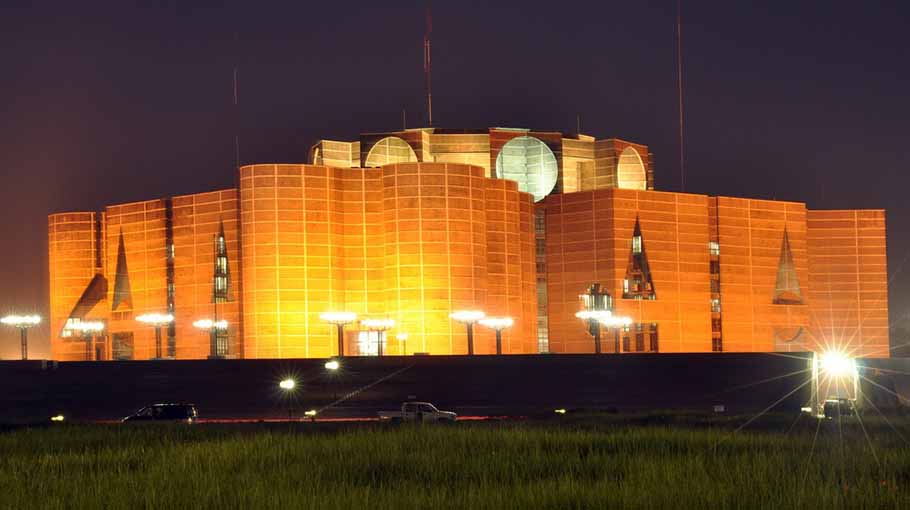Current session to pass EC law

The draft law prepared over the formation of the Election Commission (EC) titled ‘Chief Election Commissioner and Election Commissioner Appointment Act, 2022’ is going to be placed in the current 16th session of the 11th Parliament.
However, the government doesn’t want to delay the passage of the law as the upcoming EC will be formed under the new law. The term of the incumbent commission led by KM Nurul Huda expires on February 14.
The government is also ready for passage of the law in a short time aiming to give legal cover to chief election commissioners and other commissioners appointed through search committee. After the enactment, the law will also legalise all activities of the search committee.
Meanwhile, if the proposed law is not passed in the current session, President may promulgate an ordinance in this regard.
Sources said the ‘Chief Election Commissioner and Election Commissioners Appointment Bill, 2022’ will be placed in Parliament on Sunday (January 23) and it will be passed within a week.
Law Minister Anisul Huq on Thursday (January 20) said that efforts were on for the enactment of a law to appoint CEC and other election commissioners in the current session to constitute the next EC.
He said the deputy commissioners (DCs) have already been informed about the government’s move. The minister said this while briefing reporters after attending a business session with the DCs during their annual conference in the capital.
Earlier, Anisul Huq had said that a new law to constitute the Election Commission would not be passed or used to constitute the next EC, but the government has now shifted from that position.
The Cabinet on Monday (January 17) approved the ‘Chief Election Commissioner and Election Commissioners Appointment Bill, 2022’ following demand from political parties and hours before the ruling Awami League joined the dialogue with President on EC formation.
President Abdul Hamid held dialogue with the registered political parties. Most of the parties talked in favour of a new law.
The ‘search committee’ system was used on the last two occasions.
According to the proposed law, a six-member search committee headed by a judge of the Supreme Court will recommend names to President for appointing CEC and other commissioners. The judge will be nominated by the chief justice.
The five other members will include a High Court judge, the comptroller and auditor general, the chairman of Bangladesh Public Service Commission and two distinguished citizens nominated by the President.
The search committee will make the recommendations for EC formation in 10 working days.
The President will then make appointments upon the recommendations. Search committee will also be formed under the law in future.
According to the proposed law, the search committee cannot recommend anyone for the post of CEC who has been convicted and sentenced to at least two years' imprisonment for committing any criminal offence or moral turpitude or has been convicted under the International Crimes (Tribunal) Act, 1973 or holds any profitable posts of the republic.
The cabinet division will provide secretarial assistance to the search committee, according to the proposed bill.
The search committee will recommend the names to the President for the appointment of CEC and other election commissioners. It can hunt for qualified persons and at the same time can ask names from the political parties and professional organisations.
The search committee can propose two names to the President for the post of CEC. It can also recommend two persons against each of the election commissioner’s post.




